LGBTI rights are human rights
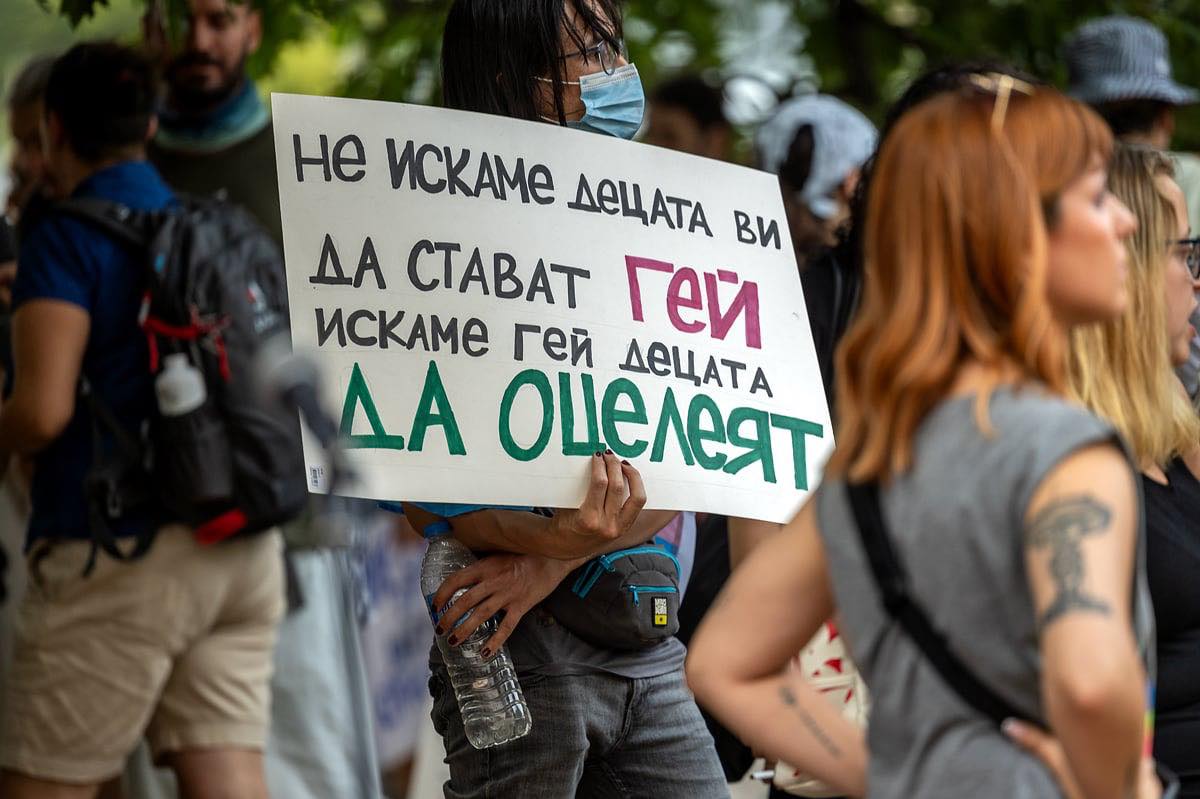
On Human Rights Day we reflect on struggles and milestones for the European and Central Asian LGBTI movement in 2024.
Human Rights Day reminds us of the universality of human rights: freedoms that belong to all people, no matter their identity. This principle is at the heart of the LGBTI movement, as LGBTI rights are human rights. In 2024, these rights were both challenged and celebrated, often reflecting broader societal shifts.
Across Europe and beyond, anti-LGBTI measures highlighted the fragility of hard-won freedoms. Georgia adopted both a “foreign agent” law and an “anti-LGBTI propaganda” law, echoing a troubling global trend of restricting civil society and stifling dissent. On December 2nd, the restrictive law came into force, banning legal gender recognition and equating same-sex relationships with incest, further institutionalising discrimination against LGBTI communities. The law also declared May 17 a holiday opposing the International Day against Homophobia, Transphobia, and Biphobia, amplifying the state’s anti-LGBTI stance. Bulgaria introduced laws targeting the discussion of LGBTI issues in schools, marking another attack on both education and freedom of expression. In Russia, the international LGBTI movement was branded as “extremist” in late 2023, but 2024 saw the first convictions under this extremist label, intensifying the risks for activists and organisations. Kyrgyzstan followed suit by enacting a Russian-style “foreign agents” law in April, subjecting non-profits to extensive state oversight and jeopardising the work of press freedom groups and civil society, including LGBTI organisations.
These developments show how attacks on LGBTI rights often signal deeper human rights violations. In Turkey, trans rights faced severe setbacks with new regulations restricting access to essential hormones, disproportionately affecting trans masculine people and those in poverty. Police repression of LGBTI demonstrations further highlighted the shrinking space for activism and public dissent. The suppression of freedom of speech, association, and democratic principles often accompanies discrimination against LGBTI communities. As such, defending LGBTI rights is part of defending the foundations of democracy and equality for all.
Progress, despite setbacks
Despite these setbacks, 2024 was also a year of hope and progress. Germany’s adoption of a self-determination law marked a major step forward for trans and non-binary people, simplifying legal gender recognition. Greece joined the growing list of European countries recognising equal marriage, while Malta’s introduction of non-binary markers on official documents underscored its commitment to inclusivity.
Beyond Europe, global human rights institutions also made strides for LGBTI people. The UN Human Rights Council adopted a resolution affirming the rights of intersex people, a relevant step in recognising and addressing the unique challenges they face. The European Court of Human Rights ruled that Poland must provide legal recognition for same-sex couples, and the Court of Justice of the European Union declared that Romania must respect gender recognition granted in other countries.
Ensuring no one is left behind
These moments of progress illustrate that advancing LGBTI rights benefits societies as a whole. Laws that affirm equality and dignity strengthen the social fabric, ensuring that no one is left behind. This year’s developments—both the setbacks and the victories—show that progress is possible, but it requires vigilance, solidarity, and collective action.
In February 2025, ILGA-Europe will publish its Annual Review, documenting these and other critical moments from the past year. Stay tuned!
How LGBTI rights are being used for political manipulation in Europe, and why that’s something everyone should be worried about
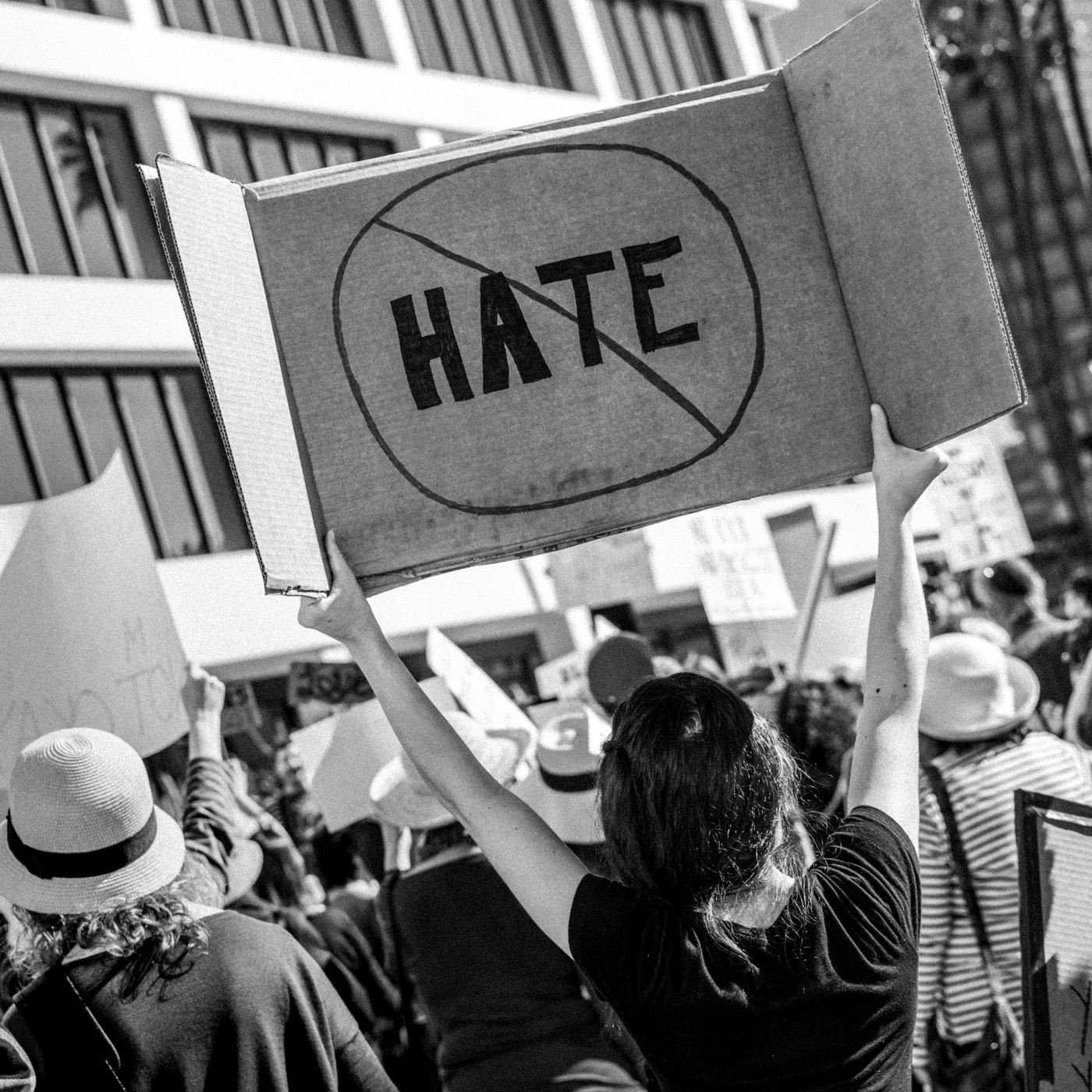
Commissioner for Human Rights, Dunja Mijatovic has issued a powerful comment, clarifying that LGBTI people are being used as a political pawns by ultra-conservative leaders in more and more European countries, and that in turn the human rights and freedom of everyone are being undermined. Here’s what she had to say.
“World Pride is being celebrated on our continent this week, but a surge in intolerance towards LGBTI people in Europe is nothing to be proud about,” said Commissioner for Human Rights, Dunja Mijatovic in the opening paragraph of a powerful comment, published on August 16. She went on to warn that public officials “are failing in their duty to promote equal dignity and human rights for all.”
The Commissioner for Human Rights is an independent institution established by the Council of Europe. Its mission is to protect human rights across Europe, pursuing direct dialogue with authorities in each state, providing advice and raising awareness, and supporting the work of human rights defenders.
Issuing comments is one of her tools towards these goals. The latest one is a strong message of support to all LGBTI communities on the European continent and a wake-up call at a time when politicians and public officials are blatantly targeting LGBTI people for their own political gain.
Here are the Commissioner’s nine main statements about the manipulation of LGBT rights by ultra-conservative politicians to gain power in Europe:
1.“Scapegoating LGBTI minorities has become a tactic applied by ultra-conservative and nationalist politicians posing as defenders of so-called “traditional values” to strengthen their base and gain or stay in power. I have observed that stigmatisation of LGBTI people is particularly pronounced in the run-up to elections and votes.”
2.“In addition to mobilising certain categories of voters, the exploitation of societal homo/transphobia has proven a convenient way to divert public attention away from government failure to address pressing social issues and rising inequalities, and broader attacks underway on human rights and democracy.”
3.“Anti-gender movement actors seek to blur the lines for their audience by adopting the vocabulary of human rights, but what they are doing in reality is working to deprive other groups — mainly women and LGBTI people — of their rights.”
4.“By permeating the political scene, the anti-gender movements are increasingly well-placed to erode the protection of human rights in Europe. It is urgent to acknowledge this fact and take steps to counter it.”
5.“Targeting LGBTI people for political gain is a costly strategy which harms the lives and well-being of those affected and undermines social cohesion in general. When public officials and elected politicians employ intolerant rhetoric, this signals to others that they too can engage in hateful actions with impunity.”
6.“Stigmatisation and political manipulation of LGBTI issues rarely stops at words; it often goes on to adversely affect how LGTBI rights are protected at policy level and by law […] Bills that should be uncontroversial have spurred heated political debate. For example, in Italy, a bill ensuring that sexual orientation and gender identity are mentioned along with other grounds in a law prohibiting hate speech and hate crimes, has been blocked for months.”
7.“As clearly established by the European Court of Human Rights, hate speech against LGBTI people is not protected by freedom of expression, and neither is it by freedom of belief.”
8.“Political parties and parliaments should adopt codes of ethics that prohibit and punish homophobic and transphobic hate speech. Public representatives should systematically condemn homophobic and transphobic speech. There must be no impunity for particularly serious cases of incitement to hatred and violence by politicians.”
9.“Human rights are universal and indivisible: ensuring that everyone in society can enjoy them is the key to cohesive, peaceful societies where everyone can strive. Pitting groups of people against each other breeds tensions, hate and violence — only serving the narrow interests of some unscrupulous politicians.”
The Frontline: Elif Shafak and the Power of Our Stories
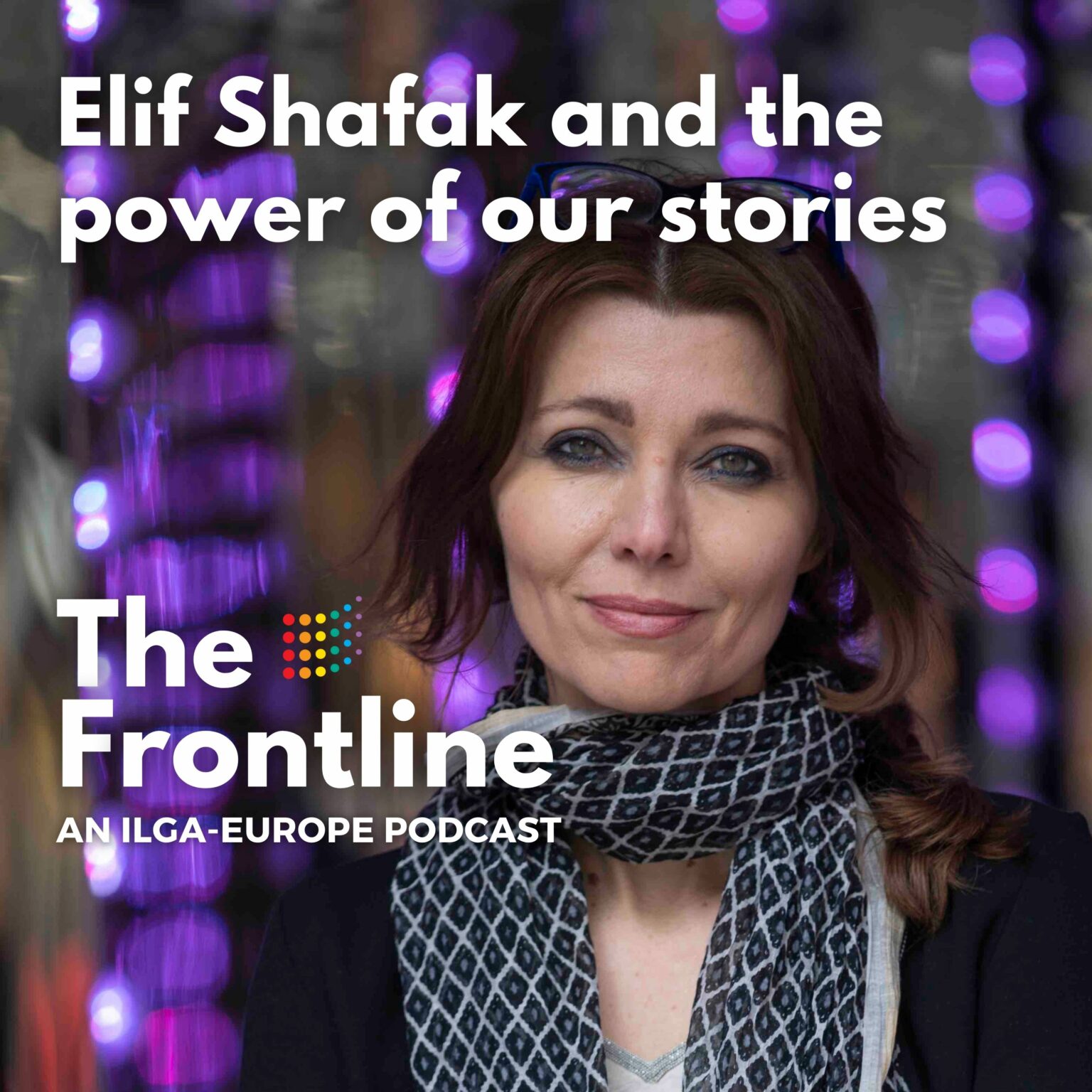
The author of 18 books of fiction and non-fiction, including The Bastard of Istanbul,Honour, and Three Daughters of Eve, Elif has come under fire from the Turkish authorities for writing about human rights abuses that its government denies. Her most recent novel, 10 Minutes 38 Seconds in this Strange World, which tells the story of a sex worker in Istanbul, was shortlisted for the Booker Prize in 2019. It sparked another investigation by Turkish prosecutors for addressing child abuse and sexual violence in her writing.
Elif joins ILGA-Europe’s Executive Director, Evelyne Paradis to talk about a widespread decline of democracy, the fight for LGBTI rights and equality, the power of our stories and her own journey towards being a vocal member of the LGBTI community.
Listen below or click here to listen and subscribe to The Frontline on your favourite podcast platform.
Responding to anti-LGBTI forces: ILGA-Europe’s call for project proposals
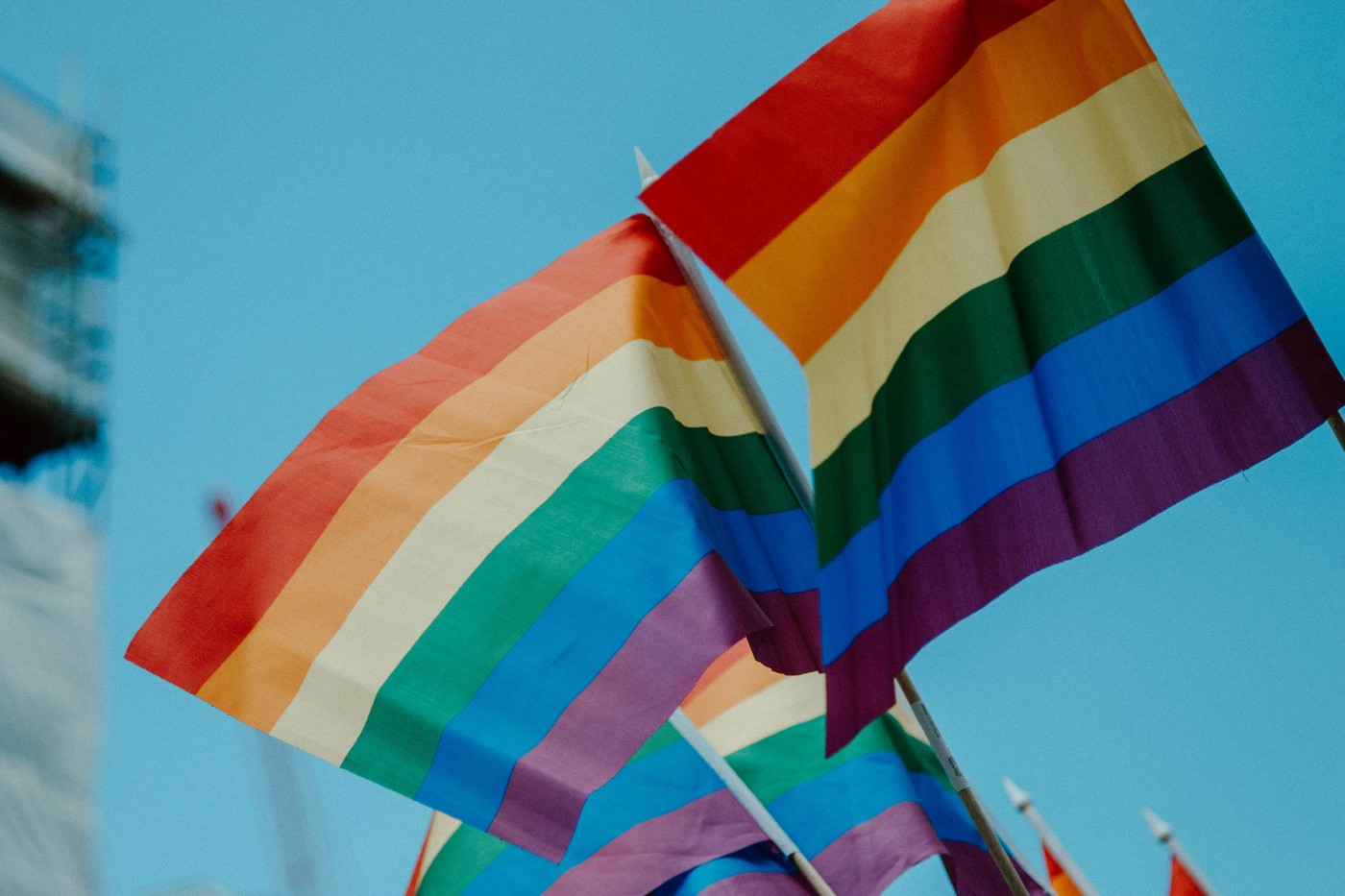
We have launched a re-granting programme to strengthen the capacities of LGBTI organisations in Europe to achieve change in the current landscape of rising anti-LGBTI forces.
At ILGA-Europe, we believe that now is a crucial time to stay united, re-claim agency and pro-actively address growing anti-LGBTI and anti-gender rhetoric and state-led anti-LGBTI attacks. That’s why we have launched a scheme under which we will support efforts that enable work on communication, alliance building, and the movement’s cohesion and resilience.
The context
For years now, we have witnessed mounting anti-gender and anti-LGBTI rhetoric, and targeted attacks against LGBTI rights and the LGBTI movement. Populists, religious actors, the far-right, ultra-conservative organisations, but also increasingly government actors and civil society actors are working to curtail LGBTI rights, gender equality, and sexual and reproductive health and rights. Their tactics are diverse and include (but are not limited to) strategic litigation, lobbying discriminatory legislation and policy, campaigning on-line, publicly presenting signatures against progressive laws, antagonising and pitting pro-rights communities against each other, producing and spreading harmful misinformation.
Some of the concrete examples of ways in which actions by these forces have impacted LGBTI communities over the recent years include – but are not limited to: the ban on legal gender recognition in Hungary; LGBTI-free zones and Family Charters in Poland; the ban on gender studies and LGBTI phobic violence during local election campaigns in Romania; violence during Plovdiv Pride and control over NGO funding in Bulgaria; the rise of anti-trans rhetoric in the UK; the increase in anti-LGBTI rhetoric in the media in Denmark; trials of Middle East Technical University’s Prides and scapegoating the LGBTI community for the withdrawal of Turkey from the Istanbul convention; and blaming the spread of COVID-19 on same-sex marriages by religious leaders in Ukraine.
Anti-LGBTI actors often use anti-equality, anti-democratic, anti-gender and anti-LGBTI rhetoric and tap into different fears and anxieties of specific national contexts. They aim to disrupt alliances, create divides, attack funding of LGBTI organisations and groups, and reduce or halt progressive laws. They also sow discontent and misinformation among the general public, scapegoat LGBTI communities to divert attention from the anti-democratic slide and socio-economic and political failures, deliberately instilling fear around topics of LGBTI rights, marriage equality, gender equality, adoption, inclusive sexual education, abortion rights, trans rights and gender studies.
In essence these are anti-rights actors who are present and active across Europe and who aim to undermine fundamental rights more broadly. Therefore, it is paramount that we pro-actively address these attacks aimed to undermine and disrupt our work and lives. We must stay united, strengthen our solidarity across the human rights sector, boost our capacities, be agile and well-organised, and work on larger progressive agendas with allied organisations in a broader human rights movement.
Aim of the program
This programme aims to strengthen the capacities of LGBTI organisations to be(come) pro-active and to achieve change in the current context of growing populist anti-gender and anti-LGBTI rhetoric and state-led anti-LGBTI attacks.
Under this programme we aim to do this through:
- Scaling-up skills, competences and capacities of the LGBTI movement in the areas of communication, alliance building, and sustaining a cohesive and resilient LGBTI movement;
- Developing new approaches and tactics for communication work, effective campaigning, alliance building and evidence-based advocacy on the rights and needs of LGBTI people in the context of rising anti-LGBTI forces.
Projects we are looking for
ILGA-Europe acknowledges that while a lot of funding has been made available by funders for advocacy purposes it’s been challenging to find financial and human resources, time and energy to do the necessary work in communication, alliance building and on the movement’s cohesion. This scheme shifts the focus and supports projects aimed at work on communication, trust building and alliance building outside and inside the movement. We believe that strengthening these aspects of work will in return create conditions under which our long-term advocacy goals are more likely to be met. Therefore, this scheme is not designed to support projects that solely address advocacy goals. However, we strongly believe the work in the three areas described below can and will feed back into existing advocacy and campaigning work of LGBTI organisations.
Budget & scope
ILGA-Europe can support 10 to 15 grants in the size of €12.500 to €17.500. Projects involving two or more organisations working in a partnership can increase their budget to €20.000 in total.
If the project involves more than one organisation it has to be developed in cooperation. Contact and other information about the applicants should include all partnered organisations. In the project and activities descriptions, there should be clear division of task and responsibilities indicated for each organisation. The budget also has to reflect clearly the distribution of the requested funds amongst partnered organisations. ILGA-Europe may contact the partner organisation(s) to verify that they commit to the project as described in the application.
The project should start between 1 and 30 September 2021, and should end by 30 September 2022. The final reporting will be due no later than 15 October 2022.
Deadline and timeline
Proposals should be submitted by 23 May, Sunday, 23:59 CEST. To find out more about the criteria and how to submit your proposal, click here.
Downloads
The Frontline: LGBTI communities in Europe: Pushed to the brink
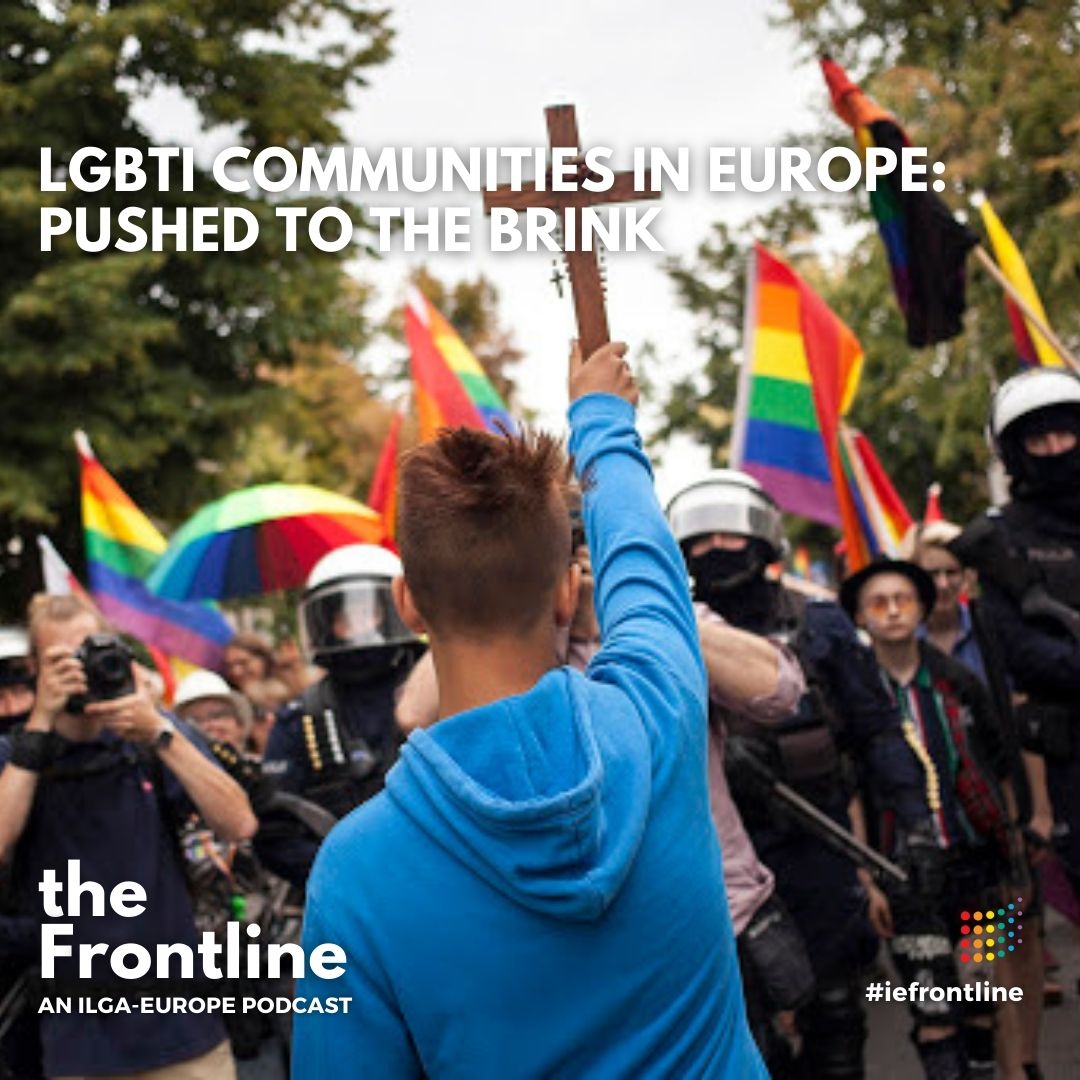
Reporting from country after country provides a glaring clarification that progress which has been taken for granted is not only increasingly fragile, but particularly vulnerable to exploitation by anti-human rights forces.
In this episode of The Frontline, we get an overview of the stark situation from ILGA-Europe’s Advocacy Director, Katrin Hugendubel. Executive Director of Transgender Europe (TGEU) talks to us about the significant growth of opposition towards trans rights across Europe; and Executive Director of ILGA-Portugal, and Marta Ramos tells us about the rise of the anti-gender movement in her country, and the ways in which LGBTI organisations have had to skew their work during the COVID-19 pandemic towards provision of basic necessities like food and shelter as many governments left LGBTI people out of their relief packages.
Listen below or click here to listen and subscribe to The Frontline on your favourite podcast platform.
The Frontline: Countering the Rise of State LGBT-phobia in Poland
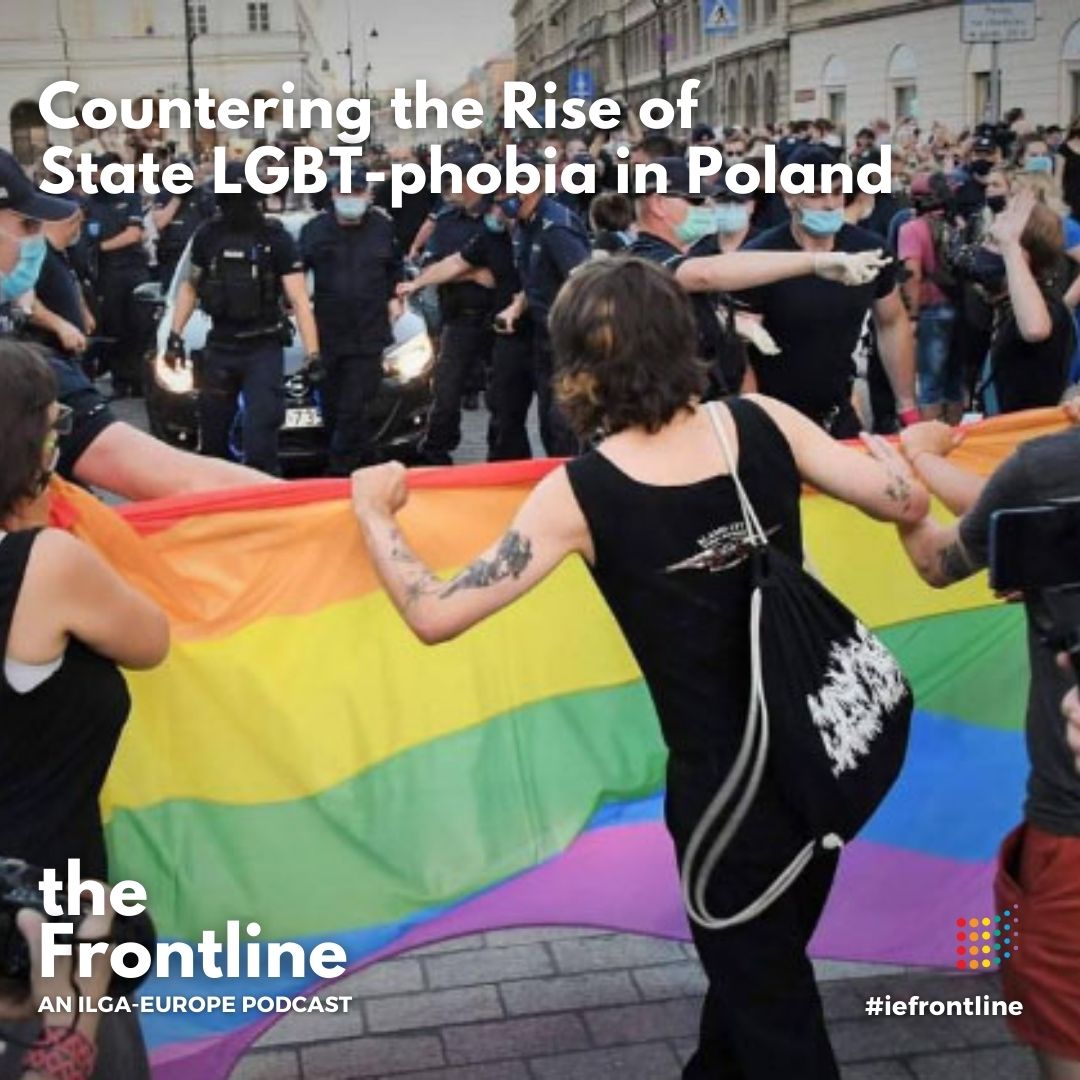
We talk to Polish activist Slava Melnyk from KPH (Campaign Against Homophobia) about how the situation has come to a head in the aftermath of the re-election of far-right President, Andrzej Duda.
David Socha, a young gay man living in the city of Pulawy, which has been designated one of Poland’s LGBT-free Zones, tells us about how this has affected his day-to-day life, and the ILGA-Europe advocacy team discuss the role of the EU institutions and external actors, and ways forward for the LGBTI movement in Poland.
Listen below or click here to listen and subscribe to The Frontline on your favourite podcast platform.
The Frontline: Bulgaria and the Spread of European Anti-LGBTI Populism
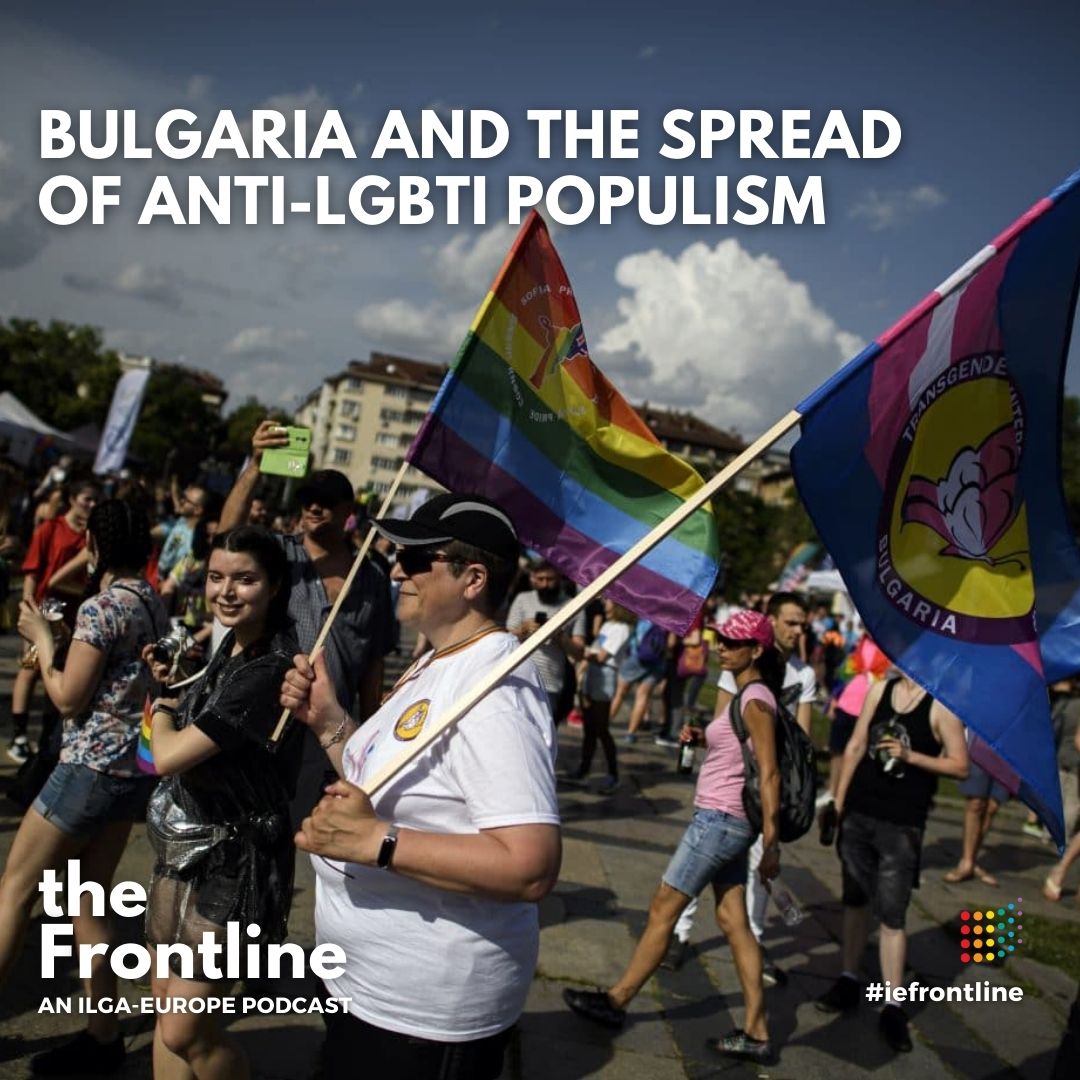
“Attitudes towards LGBTI people are changing and changing fast,” says activist, Lilly Dragoeva from the Sofia-based Billitis Foundation, in this episode of The Frontline, which delves into the current situation in Bulgaria, a country we don’t often hear about as Poland and Hungary’s governmental persecution of LGBTI people grabs the headlines. There may not be LGBT-free zones in Bulgaria, but it’s a country with almost no protections for LGBTI people, a growing, so-called ‘anti-gender’ movement, a successful spreading of demonising fake news stories, and an alarming advance in societal rejection of LGBTI people.
Along with Lilly, we speak with activist Simeon Vasilev from GLAS Foundation about a growth in official anti-LGBTI hate speech and the role the EU can play, and with Dimithar Dimitrov from the Bulgarian city of Plovidiv, where in September there were organised attacks on young people who are perceived as LGBTI.
Some hope for Bulgarian LGBTI people comes in the form of strategic litigation for the recognition of a rainbow family, and we speak to attorney Denitsa Lyubenova, from the LGBTI youth organisation, Deystvie, about the current state of play with the case.
Rounding the episode up, ILGA-Europe’s Programmes Director, Bjorn Van Roozendaal talks to us about the wider picture in Europe, the reasons behind the growth we’re seeing in anti-LGBTI politics and movements, and the way the LGBTI movement can strategise to counteract this.
Listen below or click here to listen and subscribe to The Frontline on your favourite podcast platform.
5 things you can do to respond to the anti-gender discourse
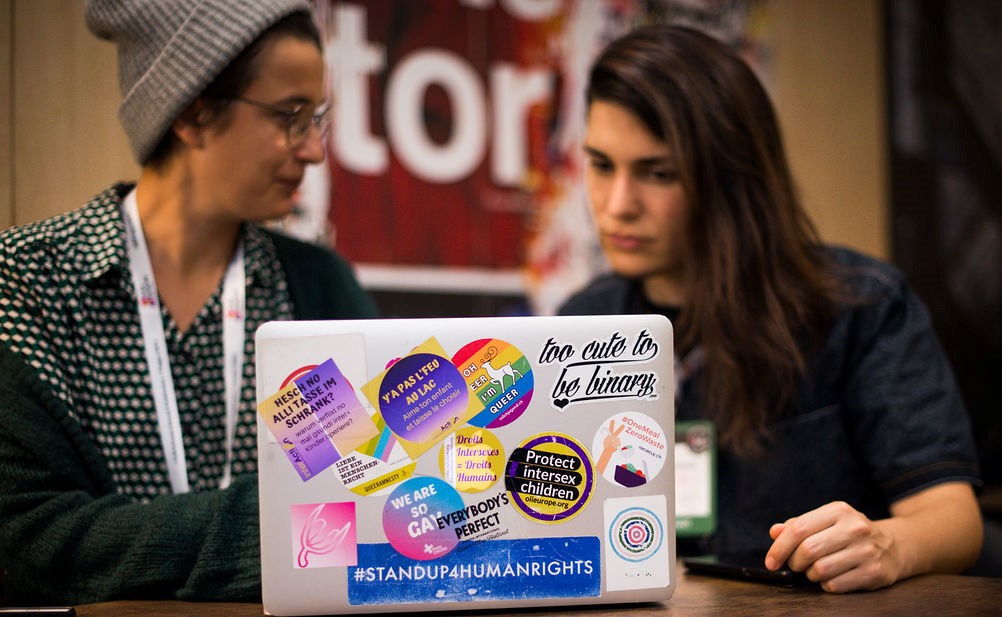
Over the past few years in Europe and some other parts of the world, we have seen the rise of the ‘anti-gender’ movement, with opposition to LGBTI rights centralised around so-called “gender ideology”.
“Gender ideology” has become an all-inclusive mobilising tool, used by various groups in the anti-gender movement (many of them religious), political parties and even state establishments to prevent equality policies from being adopted and implemented.
Our societies are built on stories. They shape how we understand our relationships, what relationships we value and pursue, and how we classify ‘us’ and ‘them’. That we can deny rights to people based on their country of origin, sexuality, or gender identity, is only possible due to a set of beliefs, or stories, about one group being more deserving than another.
At ILGA-Europe we are working on various fronts to better understand the anti-gender forces and their impact on public discourse and the lives and rights of LGBTI communities. By understanding ‘framing’ — how these stories interact with our thinking -campaigners and activists can craft their communications to effectively challenge the anti-gender rhetoric and create sustainable social change.
“Your silence will not protect you,” the feminist author and activist, Audre Lorde famously wrote. As activists we learn that speaking out goes beyond simply being the loudest voice in the room. How can we deliver our messages to those who do not fully support in our cause, but may be brought around? Based on our ongoing research, here are five recommendations to challenge anti-gender discourse.
1. Speak to people’s best selves
Even people who we don’t agree with share many of our motivations and want to do the best they can. Respecting the journey people may have to go on and acknowledging their discomfort are key to reducing prejudice.
2. Create common ground
Common grounds can be more easily understood when visibility is enhanced in areas such as workplace and the neighborhood, for example by showing shared objectives and struggles. The values and challenges LGBTI people and the rest of society have in common should be highlighted. Message testing however showed that when the rights discourse is translated into specific examples that people can easily relate to, the attitudes of respondents are more positive.
3. Talk about change
Raising awareness of discrimination against LGBTI communities won’t work if people don’t see how they can contribute to the solution. Our research showed that respondents often don’t understand how they can play a positive role in making change happen. Presenting the existing problem with ideas of how people can play a positive role in solving it, will help you to turn it around!
4. Make it real
To the wider majority, LGBTI people are largely invisible; that’s why requests for rights are often not understood or taken on board. As discrimination is not seen in their everyday lives, it is a good idea to show them that LGBTI people exist and give illustrations of our actual experiences. Concrete examples such as personal stories are very helpful, especially if associated with issues (like access to employment) that non-LGBTI people can relate to.
5. Don’t reinforce stereotypes
In some countries LGBTI activists quoted derogatory terms used by the anti-gender movement to refer to LGBTI people in their messages. However, this strategy triggered negative reactions in our research and was considered inappropriate and too challenging. To bring people on board with your message, use non-inflammatory language that everyone can get on board with.
Responding to the anti-gender movement

In the last few years ILGA-Europe worked on various fronts to better understand the anti-gender movement and its impact on public discourse and the lives and rights of LGBTI communities.
Conservative and religious actors are collaborating nationally and transnationally against so-called ‘gender ideology’. Often referred to as the ‘anti-gender movement’, it is a growing coalition of conservative and religious forces, spreading hateful discourses to wedge public opinion, often targeting LGBTI people and their human rights, sexual and reproductive rights, sexual education, and gender studies. In some countries the discourse has led to mobilisation against significant national reforms.
Discourse about so-called ‘gender ideology’ is present in a large and growing number of European countries and due to social media and digital tools, these concepts and communication strategies travel fast. Despite some remarkable successes, it has so far been challenging for the LGBTI movement to respond effectively and to develop our own narratives to counter attacks. Developing new narratives, framing and testing our messages are crucial skills to succeed.
Background
In the last few years ILGA-Europe worked on various fronts to better understand the anti-gender movement and its impact on public discourse and the lives and rights of LGBTI communities. We collected research, monitored country situations, talked with activists, allies and researchers to better understand the phenomenon and its implications. We have worked closely with member organisations in responding and resisting to attacks through our advocacy work but also contributing to build the movement’s capacity in this area.
In January 2019 ILGA-Europe hosted the workshop for LGBTI activists “Responding to the anti-gender movement: The rhetoric of the opposition, our movement’s capacities and ways to build our narratives”. The workshop aimed at sharing the information and experience gathered, and to discuss how to better tackle the anti-gender movement, not only through local and national strategies, but also through collaborative international efforts.
The results of this event were presented in June 2019 in the course of the webinar Lessons learned from the “Responding to anti-gender” workshop.
If you are an LGBTI activist and you wish to receive the recording of the webinar please contact Svetlana Zakharova, ILGA-Europe’s Senior Programmes Officer: svetlana@ilga-europe.org.
Research
In the course of the workshop activists identified frames that have been used so far and that they were planning to use again in the future tactics. Therefore the group decided to develop research to better understand the actual impact of these frames and the mental models around anti-gender discourse.
Objectives of the research
- Improve understanding of mental models around anti-gender discourse
- Test possible narratives, frames, messages to respond effectively
- Move from assumptions to systematic research.
- Analyse discourse outside capitals including in small cities
- Train members on the use of research and message testing
- Develop cooperation between LGBTI organisations and research agencies
- Provide members with a set of customised framing recommendations
Results of the research
The research project consisted in 3 focus groups in 4 countries and the main lessons learned were presented in the course of a webinar Testing narratives to respond to the anti-gender discourse: Results of the project that was held in December 2019.
If you are an LGBTI activist and you wish to receive the recording of the webinar please contact Svetlana Zakharova, ILGA-Europe’s Senior Programmes Officer: svetlana@ilga-europe.org.
Alarming Rise in Hate Attacks on European LGBTI Communities

As a sharp rise in hate attacks on LGBTI communities in Hungary, Serbia and Poland is reported, ILGA-Europe calls for the EU Commission to step up its leadership in the protection of fundamental rights
Just one week on from winning the bid for Euro Pride 2022, Belgrade’s Pride Information Centre was attacked yesterday by a gang of fans of the Red Star football team, who kicked windows and threw glass bottles. It is the fourth attack on the premises since December of last year and the centre is under police protection. However, although the police were informed of the possibility of this attack, they did nothing to prevent it. The Serbian authorities said they would not investigate the attack since no one was injured and the property was not damaged.
On Saturday, counter-protestors at the Equality March in the Polish city of Lublin were found to be in possession of explosive devices, gas canisters and firecrackers. A couple carrying a home-made bomb was arrested at the beginning of the march and are now being detained for three months before being charged. According to a court expert, the bomb could have caused deaths at the march.
One week ago in Budapest, on September 26, the neo-Nazi group Our Nation Movement (Mi Hazánk Mozgalom) disrupted a movie screening about tackling bullying LGBTQ youth at schools. Between five and ten members of the group broke into the screening room carrying banners saying “Stop LGBT Propaganda” and “Zero Tolerance”, shouting and insulting the participants.
When the police arrived on the scene they silently stood by and watched as the Our Nation Movement members repeatedly threatened participants with “beating them up” and demanded “banning faggots”. Only when someone poured a cup of yoghurt on the Our Nation Movement banner, did the police intervene.
In all three countries, Hungary, Poland and Serbia, there have been moves to impose restrictions on LGBTI people, and a rise in political anti-LGBTI hate speech.
In 2017 the Hungarian Prime Minister, Viktor Orbán hosted an American Christian organisation that has been accused of being an anti-LGBT hate group. Opening the event, Orbán accused the European Union of being dominated by a “relativising liberal ideology that’s an insult to families.”
In October last year Orbán issued a decree revoking funding for gender studies programmes in Hungarian universities and on September 9 this year, Orbán said that if his candidate is elected the next major of Budapest, he will change the Constitution to ban lesbian and gay people from adopting.
Despite being led by a lesbian Prime Minister, in August of this year, the right-wing Serbian government banned artificial insemination and IVF for anyone who has a history of homosexual relations during the last five years.
In Poland, the governing Law and Justice (PiS) party have made countering “LGBT Ideology” part of its platform for the country’s October 13 elections. In July, a government-sponsored newspaper issued ’LGBT-free zone’ stickers in advance of an Equality march in the city of Bialystok. A law graduate in the capital of Warsaw compared the stickers to anti-Jew signs displayed by the Nazis in Germany.
Says Katrin Hugendubel, Advocacy Director with ILGA-Europe: “We strongly condemn any attack on LGBTI communities, whatever form they take. Particularly worrying is the escalation in violence in Poland, where explosive devices were taken to the Lublin Equality March, presumably intending to cause grievous bodily harm or death.
“These attacks are integrally linked to roll-backs in legislation, anti-LGBTI hate speech from those in authority, and in the case of the Serbian and Hungarian attacks, a serious lack of intervention by the police and state authorities. The safety of the LGBTI community is not separate from the safety of all who live in Europe, and the erosion of that safety is a marker for the erosion of all fundamental human rights. That is why now, more than ever, we need governments and international institutions to stand strong on fundamental rights and against hate and discrimination, and we need the next European Commission to adopt an EU-level LGBTI strategy to step up its leadership and actions in the protection of fundamental rights.”